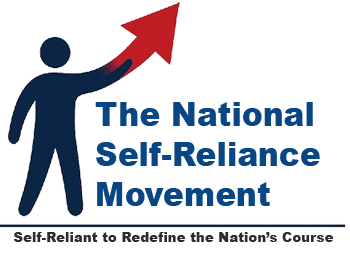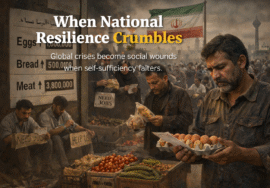Rebuilding Democracy from the Roots: Gema Bangsa’s New Political Vision

Indonesian Politics Faces a Crisis of Trust
Today, Indonesian politics is facing a serious crisis of trust. Amid the flood of information, the public feels increasingly unheard. Power is becoming more centralized, opposition has nearly vanished, and many political parties appear uniform in both views and policies. A democracy that lacks diverse voices becomes dull—deprived of any real corrective force.
In the Obrolan Gema Kebangsaan program on Gema TV’s YouTube channel, Joko Kanigoro and I agreed that the current political climate is deeply unhealthy. When the executive and legislative branches are aligned, and even the judiciary seems drawn into the same circle of power, the people effectively lose control over decisions made in their name.
We have a long history with authoritarianism: the Old Order with a lifetime presidency, and the New Order with decades of unchallenged rule. Reform came to break that cycle. But have we truly escaped the shadows of the past?
Today, public trust in government has plummeted. While figures like Prabowo Subianto are seen as beacons of hope, a paradox emerges: the people place their hopes in one individual, yet distrust the system and elites surrounding him. This is no longer just about electability—it reflects a longing for a leader capable of making bold, strategic “chess moves” to save the nation. But change cannot rely on one person alone; a broken system must be dismantled at its roots.
Grounded Politics: Decentralization and a Bottom-Up Approach
Gema Bangsa was born as the antithesis of parties that treat power as their ultimate goal. We reject the feudal, top-down system. We choose to build our party structure from the ground up—from the people. In Gema Bangsa, the Central Executive Board (DPP) is not the sole decision-maker. The voices of Regional and Provincial Boards (DPD and DPW) are central to decision-making.
We reject the practice of placing one figure at the center of everything. We aim to cultivate leaders who emerge through a mature process—not through mere connections. Our cadre development is serious and continuous, designed to produce representatives and regional leaders who truly understand the people’s problems, possess strong moral integrity, and are ready to serve.
Two Root Problems: Education and the Corruption Mentality
Many of our national issues stem from two fundamental problems: education and a culture of corruption. We have never seriously built a holistic education system—one that focuses not only on intelligence but also on character formation. Our education system often struggles to keep up with the times and lacks a strong, sustainable national model.
We also fall short in investing in research and innovation. Countries like China, South Korea, and Malaysia once learned from us, but now they’ve surged ahead—thanks to bold investments in research and adaptive education systems. We’ve fallen behind because we hesitate to invest in the future.
Meanwhile, the corrupt mentality remains entrenched. Even the values that should be instilled through religious and moral education have been sidelined. When character erodes, higher education alone cannot help. That’s why education reform must integrate national and religious curricula into a unified value system.
Disproportionate Public Spending
Another major irony in this country is that most of the national and regional budgets—around 60–70%—are spent on paying civil servants. Only about 30% is allocated to development that truly reaches the people, and even that is often siphoned off through corruption.
Infrastructure development, alternative industries, and job creation should be top priorities to address unemployment and poverty. But as long as public spending is limited, people will remain dependent on short-term solutions like social assistance—which only breeds dependency.
Gema Bangsa: Answering Through Systems
Gema Bangsa believes that the root of political party dysfunction lies in systems that enable feudal culture and transactional practices. We aim to reverse that. We build systems that value cadres from the start—even those who don’t win elections are still empowered and given roles. Every seat won is the result of collective effort. Victorious candidates are required to respect and involve those who didn’t win. This isn’t just lip service—it will be codified in our internal regulations.
With a bottom-up system, tiered cadre development, and decentralized structure, Gema Bangsa seeks to restore public trust in political parties. True democracy can only emerge from a healthy party—one not run by political elites, but by the people themselves.
Hope Amid Uncertainty
We are not anti-government; in fact, we want the government to function properly. We hope President Prabowo will take bold steps to address long-standing issues—such as mining corruption, the broken education system, and imbalanced public spending.
But we also recognize that change cannot come from the top alone. There must be a political party willing to push from below. That is where Gema Bangsa stands. As a new political movement, we bring hope and respond to public anxiety by offering a concrete system—not just rhetoric.
True democracy is when the people not only vote—but also help shape the decisions.








